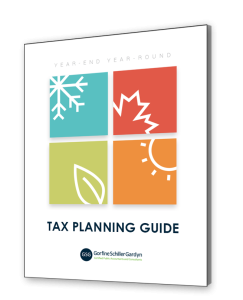If you’re worried about the tax deadline, it’s fine to file for an extension. But read on — You might owe some interest.
Since April 15th falls on a Saturday this year, and April 17th is Emancipation Day, the tax-filing deadline this year is on April 18th. While these two extra days may seem like a reprieve, there is always the option to file for an extension.
Once you’ve requested the extension, you automatically have an additional six months beyond April 18th, and your taxes will be due on October 15, 2023. This six-month window is certainly welcome to many taxpayers, but there are some pros and cons to consider before filing for an extension.
Pros:
- You will have the time and flexibility needed to ensure accurate and complete tax filing.
- It will help in avoiding mistakes and errors on your tax returns.
- You will have more time to collect delayed or corrected W-2s or 1099s, which can be incorporated into the October 15th
- You will have more flexibility to better manage your overall financial situation.
- Filing for an extension does not increase your changes of being audited.
Cons:
- If you owe taxes and do not pay on the original tax filing date, you may be subject to interest charges on the unpaid amount.
- You will be subjected to a late-payment penalty. The penalty for late payments depends on how much tax you still owe relative to what’s been paid already.
- If you underpay, the IRS’ interest rate is 4 percent per year, compounded daily, on any taxes not paid.
- If you pay them less than 90 percent of your tax liability, in addition to the 4 percent per annum, there’s a half-percent-a-month penalty.
- If you are owed a tax refund, filing for a tax extension means that your refund will also be delayed.
- There will be additional paperwork and record-keeping due to the need to submit Form 4868 to the IRS.
- You may need to keep track of additional records and documentation until you actually file your tax return.
If you owe taxes and you fail to file for an extension at all, there are considerable financial consequences. For example, the IRS’ penalty for not filing is 5 percent of the amount of tax owed, imposed every month the tax return is late.
If you can’t pay what you owe, the IRS suggests that you pay what you currently can to lessen interest and penalties.
Interested in learning more about how you can file for a tax extension? Contact GSG today for more guidance and insights.
Categories: Tax




